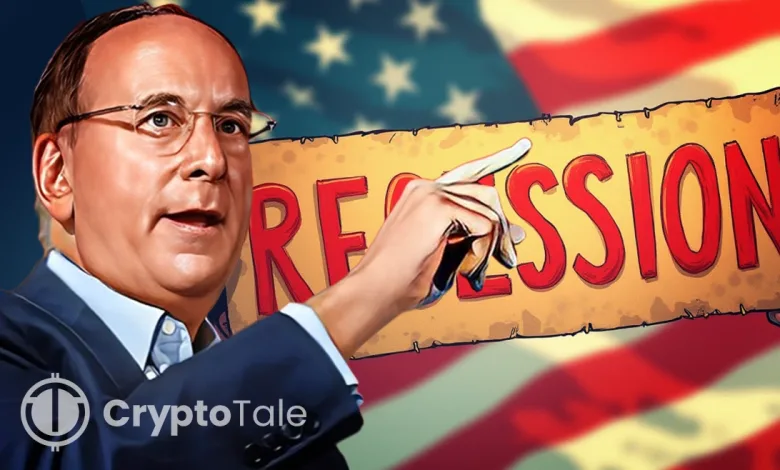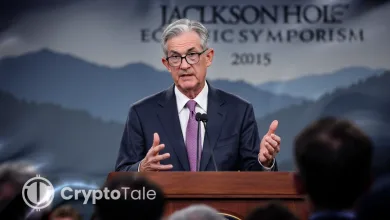BlackRock CEO Warns of Recession Amid Trump’s Tariff Moves

- Larry Fink says the U.S. is likely in a recession as Trump tariffs heighten economic risk.
- Despite recession fears and market volatility, BlackRock reported $84B in Q1 net inflows.
- Trump’s 145% tariffs on Chinese imports triggered market sell-offs and investor caution.
BlackRock CEO Larry Fink said on Friday that the U.S. economy may already be in a recession following President Donald Trump’s broad tariff rollout. During a CNBC appearance, Fink stated that the recent trade actions have increased economic uncertainty and dampened investor sentiment.
Fink’s remarks came just hours after Trump announced a 90-day pause on the tariffs. Despite this move, the asset manager expressed concern that the pause may only extend market anxiety. He added that policy clarity delays could further slow economic activity, affecting both businesses and consumers.
The U.S. President implemented a flat 10% import tax on most goods and raised tariffs on Chinese products to 145% after earlier levies of 20%. In response, China retaliated by increasing its duties on American goods to 125%. Fink noted that such policy shifts disrupt market confidence and long-term planning.
Economic Indicators Reflect Growing Uncertainty
Despite positive figures in job growth and retail sales, several indicators suggest early signs of a downturn. Fink suggested that recent consumer spending might reflect stockpiling ahead of anticipated price hikes rather than stable demand. Further, BlackRock’s data shows a surge in cash holdings, which he interpreted as a sign of risk aversion.
A market response to tariffs prompted Goldman Sachs to increase its recession probability prediction from 35% to 45%. The S&P 500 recorded its biggest two-day market decline since March 2020, demonstrating deep investor worry. According to JPMorgan executive reports, clients have modified their actions by postponing buying decisions and lowering their exposure to potential risks.
Additional financial sector leaders shared Fink’s perspectives. Wells Fargo faces corporate client reluctance stemming from unstable business policies, while KPMG detects escalating oversight of financial decisions and credit risk. Treasury yields have also reacted sharply, reflecting longer-term worries about U.S. economic stability.
Related: Trump Claims World Leaders “Kissing His Ass” Over Tariffs
BlackRock Earnings Stable, But Market Mood Shifts
While BlackRock exceeded expectations with adjusted Q1 earnings of $11.30 per share, its revenue of $5.28 billion slightly missed analyst estimates. The firm reported $84 billion in net inflows and $11.6 trillion in assets under management. Despite the earnings, Fink emphasized that most client discussions centered around uncertainty and risk management.
He also stated that long-term investment trends like artificial intelligence (AI) and infrastructure remain intact. However, he acknowledged a growing interest in European assets, hinting at potential capital reallocation if U.S. market volatility continues.
Speaking earlier at the Economic Club of New York, Fink mentioned that many CEOs share his concerns and concluded that while the U.S. is not in a financial crisis, economic conditions remain fragile and ongoing policy changes could deepen recession risks.




